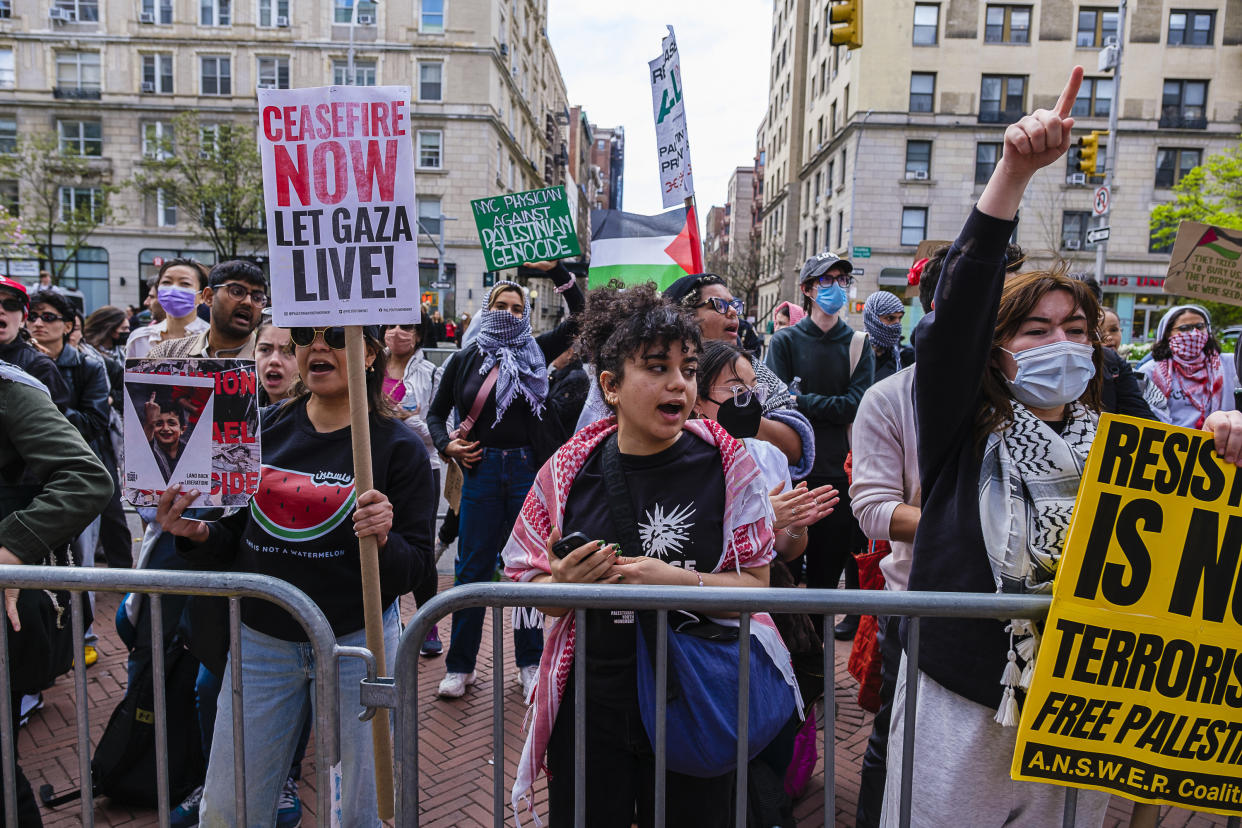Barnard College offers to lift student suspensions over Gaza protests on Columbia campus

NEW YORK — Columbia-affiliated Barnard College is looking to cut a deal with students suspended over the recent Gaza protests that would allow them to have their records cleared — if they agree to follow all college rules going forward.
That would likely require them to avoid the new encampment protesting the Israel-Hamas war now taking root on the Columbia campus, which college officials have said is a violation of school rules.
The Columbia University-affiliated women’s college offered this week to lift the suspensions of students with no previous misconduct on their record, which college officials said is the “vast majority” of those who protested.
At least 53 Columbia students who were suspended last week attend Barnard, student newspaper Columbia Spectator reported.
“Last night, the College sent written notices to these students offering to lift the interim suspensions,” college president Laura Rosenbury wrote, “and immediately restore their access to College buildings, if they agree to follow all Barnard rules during a probationary period.”
“If these students choose this path, neither the interim suspension nor the probationary period will appear on the students’ academic transcripts,” Rosenbury said in the memo, her first communication to students since Thursday’s mass arrests.
Students on interim suspension lost access to most Barnard buildings, including their housing, but can still use services including healthcare, mental health counseling and academic support. They are not permitted to be physically on campus, though Barnard professors can make accommodations for them to attend class via Zoom and otherwise complete work remotely.
“I strongly believe that exposure to uncomfortable ideas is a vital component of education, and I applaud the boldness of all of our students who speak out,” read the email, “but no student should fear for their safety while at Barnard, and no one should feel that they do not belong.”
Spokespeople for Barnard College did not immediately return a request for comment.
The latest chapter in the ongoing tension over Gaza at Columbia began last week as Columbia University President Shafik readied for a congressional hearing on the university’s response to antisemitism. Meanwhile, students began occupying a lawn with dozens of tents, which they called the “Gaza Solidarity Encampment.”
University administrators warned students to leave and began notifying them Thursday of suspensions. By the afternoon, Shafik called in the NYPD, which wore riot gear, to clear the lawn and arrest more than 100 students.
But the sweep appeared only to embolden the demonstrators who continued to camp out on the lawn while they chanted, hosted lectures, danced and held screenings throughout the weekend. On Monday night, students held a Passover seder at the encampment, where they shared a meal and read from a special Haggadah, rewritten to advocate for Palestinians in Gaza.
While some Jewish students participated in the demonstration, others reported feeling uneasy in and around campus. One university rabbi warned Jewish students to stay home, after more than 100 students signed onto an open letter asking to attend classes online “until the situation has entirely deescalated.”
On Monday, university officials granted that request, pivoting entirely to remote that day. As night fell, administrators announced a new policy requiring most courses — technology and program permitting — to offer hybrid learning on the main campus.
After Columbia erected its encampment, several other pro-Palestinian student groups on other campuses followed suit, including at New York University, where 120 protesters were arrested Monday night.
_____

 Yahoo News
Yahoo News 
